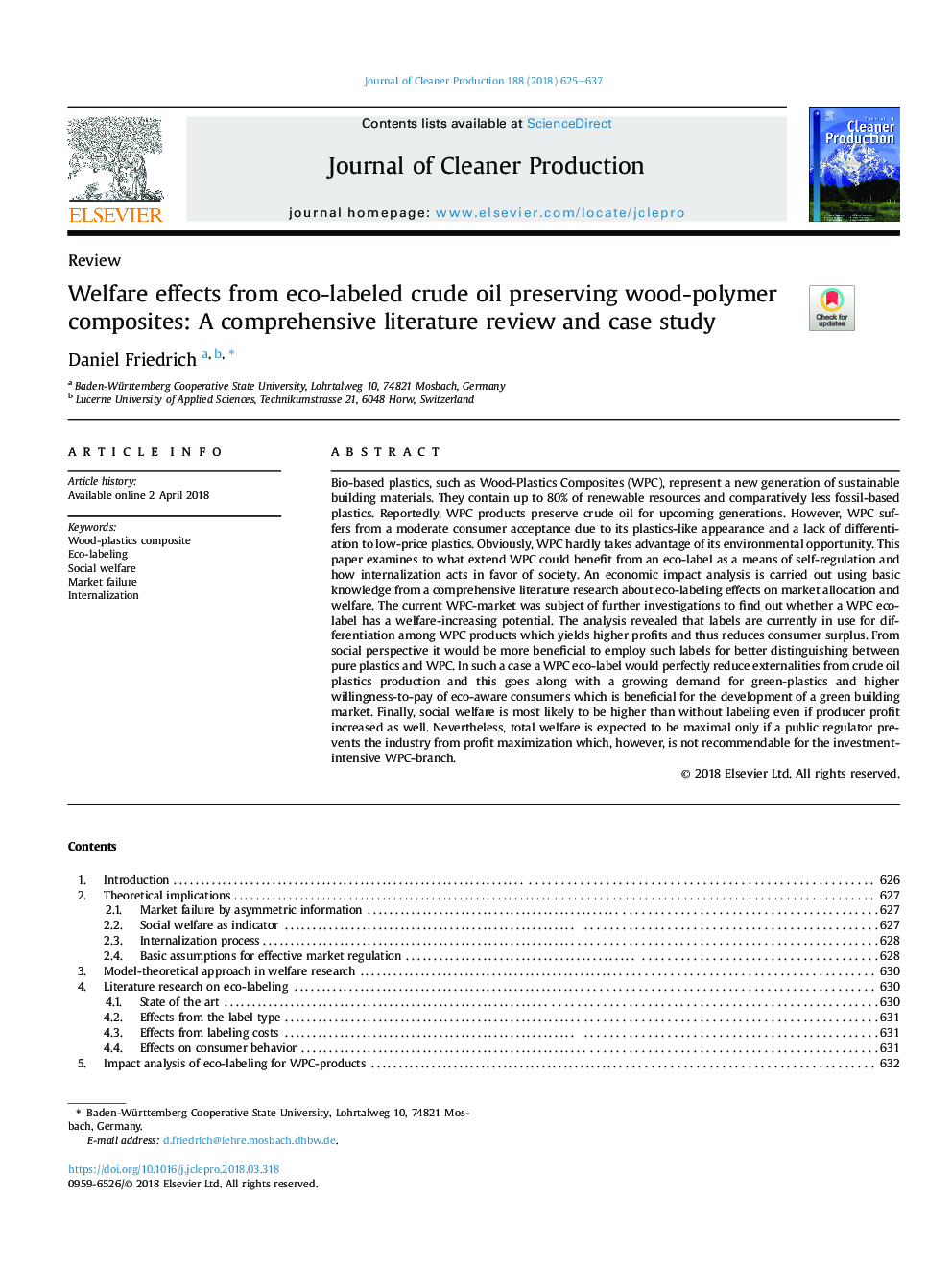| کد مقاله | کد نشریه | سال انتشار | مقاله انگلیسی | نسخه تمام متن |
|---|---|---|---|---|
| 8095593 | 1522065 | 2018 | 13 صفحه PDF | دانلود رایگان |
عنوان انگلیسی مقاله ISI
Welfare effects from eco-labeled crude oil preserving wood-polymer composites: A comprehensive literature review and case study
ترجمه فارسی عنوان
اثرات رفاهی از نفت خام روغن زیتون حفظ کامپوزیت های چوب و پلیمر: یک بررسی جامع ادبی و مطالعه موردی
دانلود مقاله + سفارش ترجمه
دانلود مقاله ISI انگلیسی
رایگان برای ایرانیان
کلمات کلیدی
چوب کامپوزیت پلاستیک، برچسب زدن به محیط زیست، رفاه اجتماعی، شکست بازار، داخلی سازی،
موضوعات مرتبط
مهندسی و علوم پایه
مهندسی انرژی
انرژی های تجدید پذیر، توسعه پایدار و محیط زیست
چکیده انگلیسی
Bio-based plastics, such as Wood-Plastics Composites (WPC), represent a new generation of sustainable building materials. They contain up to 80% of renewable resources and comparatively less fossil-based plastics. Reportedly, WPC products preserve crude oil for upcoming generations. However, WPC suffers from a moderate consumer acceptance due to its plastics-like appearance and a lack of differentiation to low-price plastics. Obviously, WPC hardly takes advantage of its environmental opportunity. This paper examines to what extend WPC could benefit from an eco-label as a means of self-regulation and how internalization acts in favor of society. An economic impact analysis is carried out using basic knowledge from a comprehensive literature research about eco-labeling effects on market allocation and welfare. The current WPC-market was subject of further investigations to find out whether a WPC eco-label has a welfare-increasing potential. The analysis revealed that labels are currently in use for differentiation among WPC products which yields higher profits and thus reduces consumer surplus. From social perspective it would be more beneficial to employ such labels for better distinguishing between pure plastics and WPC. In such a case a WPC eco-label would perfectly reduce externalities from crude oil plastics production and this goes along with a growing demand for green-plastics and higher willingness-to-pay of eco-aware consumers which is beneficial for the development of a green building market. Finally, social welfare is most likely to be higher than without labeling even if producer profit increased as well. Nevertheless, total welfare is expected to be maximal only if a public regulator prevents the industry from profit maximization which, however, is not recommendable for the investment-intensive WPC-branch.
ناشر
Database: Elsevier - ScienceDirect (ساینس دایرکت)
Journal: Journal of Cleaner Production - Volume 188, 1 July 2018, Pages 625-637
Journal: Journal of Cleaner Production - Volume 188, 1 July 2018, Pages 625-637
نویسندگان
Daniel Friedrich,
